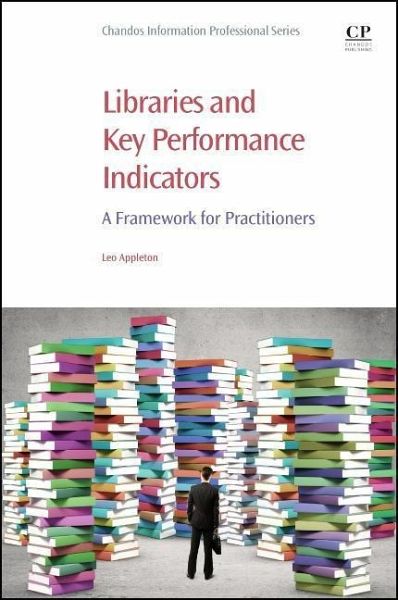
Libraries and Key Performance Indicators
A Framework for Practitioners

PAYBACK Punkte
25 °P sammeln!
Libraries and Key Performance Indicators: A Framework for Practitioners explores ways by which libraries across all sectors can demonstrate their value and impact to stakeholders through quality assurance and performance measurement platforms, including library assessment, evaluation methodologies, surveys, and annual reporting. Whilst several different performance measurement tools are considered, the book's main focus is on one tool in particular: Key Performance Indicators (KPIs). KPIs are increasingly being used to measure the performance of library and information services, however, linki...
Libraries and Key Performance Indicators: A Framework for Practitioners explores ways by which libraries across all sectors can demonstrate their value and impact to stakeholders through quality assurance and performance measurement platforms, including library assessment, evaluation methodologies, surveys, and annual reporting. Whilst several different performance measurement tools are considered, the book's main focus is on one tool in particular: Key Performance Indicators (KPIs). KPIs are increasingly being used to measure the performance of library and information services, however, linking KPIs to quality outcomes, such as impact and value can prove very difficult. This book discusses, in detail, the concept of KPIs in the broader context of library assessment and performance measurement. Through reviewing some of the applied theory around using KPIs, along with harvesting examples of current best practices in KPI usage from a variety of different libraries, the book demystifies library KPIs, providing a toolkit for any library to be used in setting meaningful KPIs against targets, charters, service standards, and quality outcomes.













